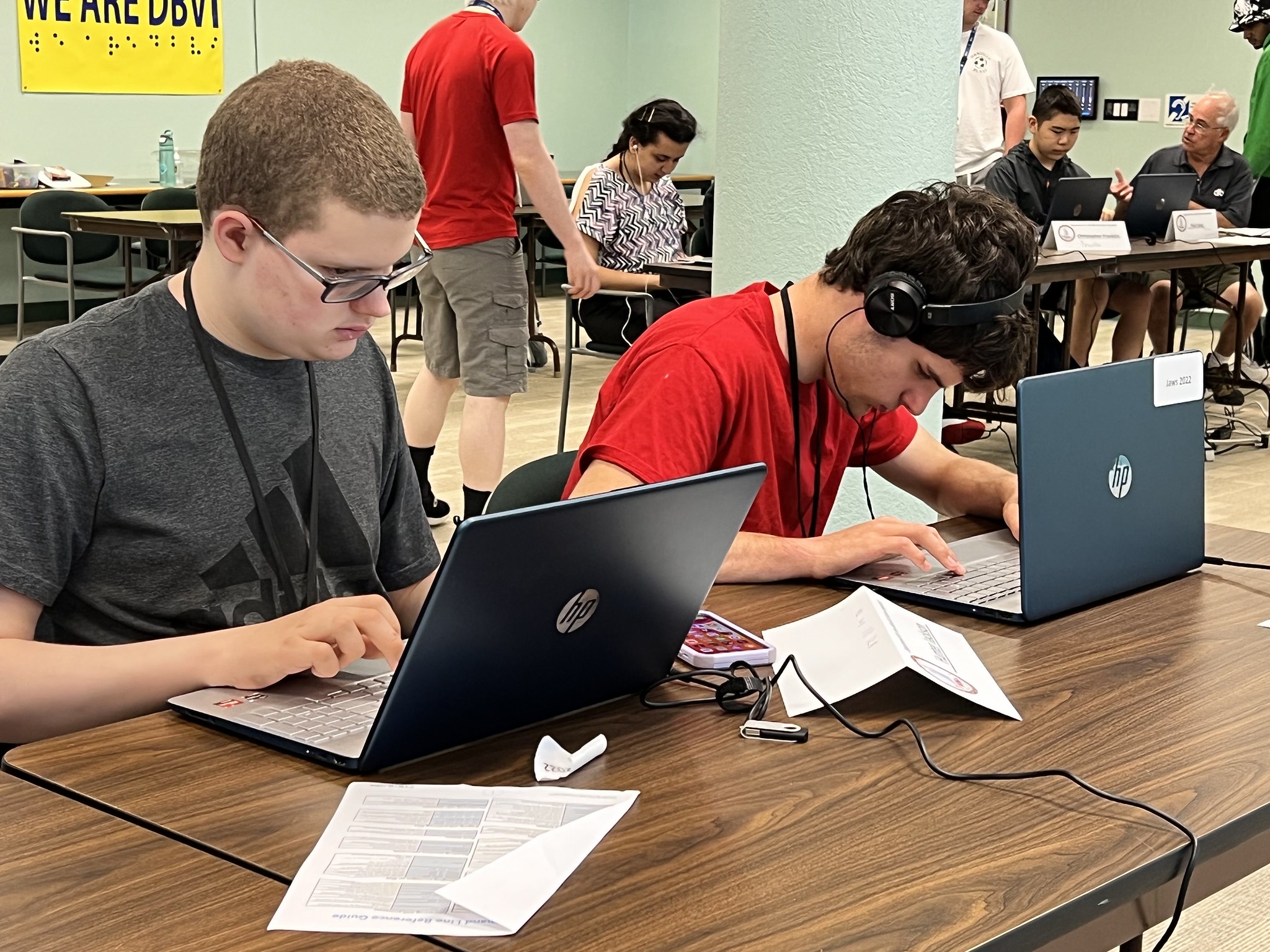A new cybersecurity program for students with visual impairment is yet another promising initiative for educators who have made it a priority to fill the most critical shortages in the workforce.
The U.S. faces a shortfall of nearly 714,000 cybersecurity professionals, according to CYBER.ORG. The organization’s Project Access, which is running summer camps in several states, is expanding access to cybersecurity education and career preparation for blind and vision-impaired students between the ages of 13-21, says Kevin Nolten, vice president of Cyber Innovation Center, the parent organizationo of CYBER.ORG. Within the cybersecurity realm, instructors are teaching students how to build and code robots and manage networks with the Linux operating system.
“Someone who has a disability may self-select out of areas like cybersecurity more quickly than other students,” Nolten says. “We’re removing the ‘I can’t do that’ component and giving them the ‘Oh my gosh, this is what’s possible.’ We’re making them aware of a whole new path.”
The students are provided with accessibility tools that magnify or read screens. And they can build robots by feel, with parts that come in different textures and sizes. The robots, in turn, play sounds so students know the direction in which their creations are going. They also try to break into and destroy mock computer networks and hack passwords to learn the many ways systems can be compromised. The experience can place students on the path to earning certifications in cybersecurity, Nolten says.
Justice Roberts, a mentor in CYBER.ORG’s summer camp in Virginia, said cybersecurity was not offered at their high school when they were a Project Access student in 2018. “I grew up in the middle of nowhere and I didn’t have social networking skills to make connections,” says Roberts, who is now studying math at Lipscomb University in Tennessee. “The camp helped me learn soft skills such as how to communicate and work in teams to solve problems, which have served me long-term as far as being able to advocate for myself.”
FETC 2023
The Future of Education Technology® Conference takes place live and in-person Jan. 23-26, 2023, in New Orleans. Register now!
Participating in the camps also helped Roberts realize what they weren’t interested in–which is the hardware side of the tech industry–and that they prefer working with software. “It goes to show there is no limit as far an individual’s ability see perfectly as to how far they can go in cybersecurity,” they say.
The program, which was initially piloted with Virginia’s Department for the Blind and Vision Impaired in 2017, is open to students who don’t have prior computer or technology experience. More than 90% of the program’s participants said they planned to study cybersecurity in college, pursue cybersecurity credentials or go directly into the cybersecurity workforce.
CYBER.ORG intends to work with districts to bring Project Access and experiential learning to more students with visual impairments. The organization can provide districts with professional development, curriculum resources and other tools. “We need to ensure that teachers have the confidence to begin implementing cybersecurity inside the classroom,” Nolten says. “These jobs are a national security issue, and K-12 educators are the key to decreasing the number of jobs that are open.”
AR and accessibility: Why augmented reality is a big hit with diverse learners










